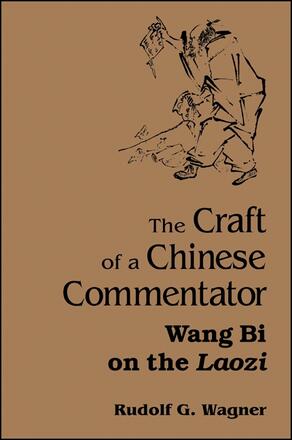
The Craft of a Chinese Commentator
Wang Bi on the Laozi
Alternative formats available from:
A systematic study of Wang Bi's (226-249) commentary on the Laozi, this book provides the first systematic study of a Chinese commentator's scholarly craft and introduces a highly sophisticated Chinese way of reading the Taoist classic, one that differs greatly from Western interpretations.
Description
The Laozi has been translated into Western languages hundreds of times over the past two hundred years. It has become the book of Chinese philosophy most widely appreciated for its philosophical depth and lyrical form. Nevertheless, very little attention has been paid to the way in which this book was read in China. This book introduces the reader to a highly sophisticated Chinese way of reading this Taoist classic, a way that differs greatly from the many translations of the Laozi available in the West.
The most famous among the Chinese commentators on the Laozi—a man appreciated even by his opponents for the sheer brilliance of his analysis—is Wang Bi (226–249). Born into a short period of intellectual ferment and freedom after the collapse of the Han dynasty, this self-assured genius, in the short twenty-three years of his life, dashed off two of the most enduring works of Chinese philosophy, a commentary on the Laozi and another on the Book of Changes.
By carefully reconstructing Wang Bi's Laozi text as well as his commentary, this book explores Wang Bi's craft as a scholarly commentator who is also a philosopher in his own right. By situating his work within the context of other competing commentaries and extracting their way of reading the Laozi, this book shows how the Laozi has been approached in many different ways, ranging from a philosophical underpinning for a particular theory of political rule to a guide to techniques of life-prolongation. Amidst his competitors, however, Wang Bi stands out through a literary and philosophical analysis of the Laozi that manages to "use the Laozi to explain the Laozi," rather than imposing an agenda on the text. Through a critical adaptation of several hundred years of commentaries on the classics, Wang Bi reaches a scholarly level in the art of understanding that is unmatched anywhere else in the world.
Rudolf G. Wagner is Professor of Chinese Studies at the Institute of Chinese Studies, University of Heidelberg, Germany. His previous books include Reenacting the Heavenly Vision: The Role of Religion in the Taiping Rebellion, The Contemporary Chinese Historical Drama: Four Studies, and Inside a Service Trade: Studies in Contemporary Chinese Prose. He received the Leibnitz Award for scholarly excellence from the German Research Foundation in 1993.